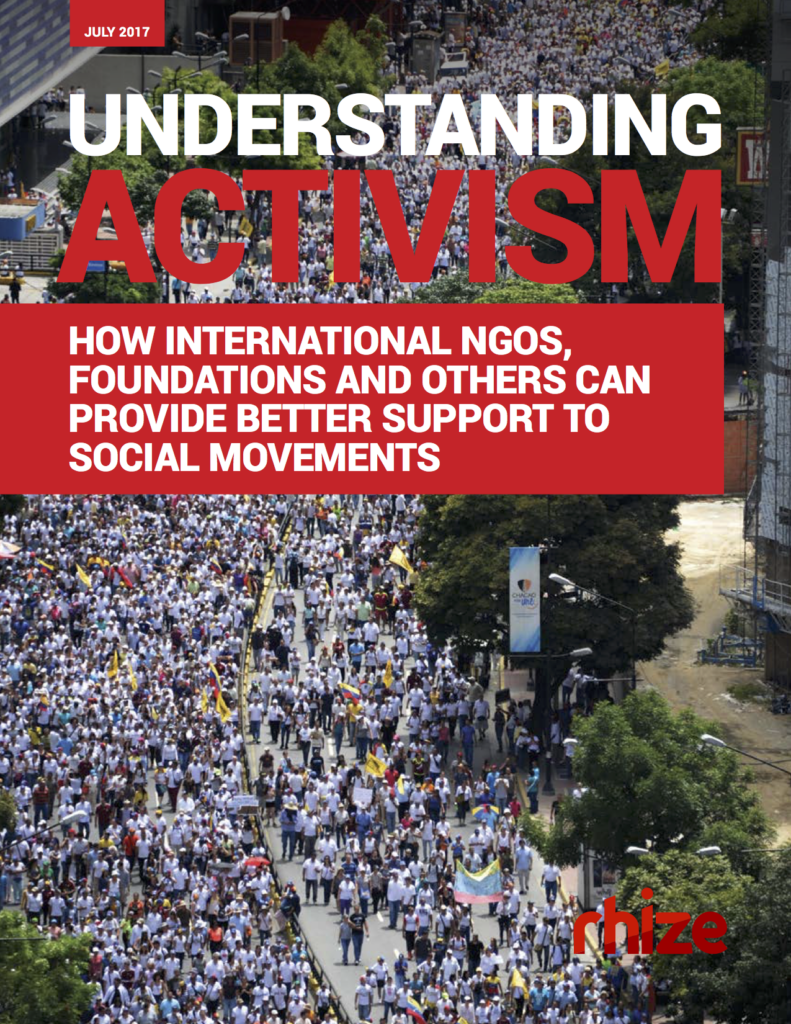Activists are struggling for open, democratic societies across the globe with access to few resources and little support. The concentration of existing support often comes from external actors — foreign governments, foundations, nongovernmental organizations, and private individuals — yet there has been insufficient research on how activists experience this support, until now. “Understanding Activism” breaks new ground by combining first-person accounts from activists with quantitative data across closed, semi-closed, and closing societies in order to understand the current support available to activists in contrast with what activists actually want.
“Understanding Activism” provides critical insights into practices that can be adopted across civil society to ensure more effective support to nonviolent movements at the forefront of securing inclusive, participatory democracies.
The research centered on three key questions:
- What type of support do activists receive?
- Which types of support are helpful or harmful?
- What types of support do activists really want?
What did we learn?
Gathering data from over 1,100 activists in 10 countries, we saw some alarming trends. Most importantly: external actors are an inextricable part of the threat that activists face. We learned that:
- Activism is under threat, with conditions worsening for activists across almost all activities.
- Organizations and individuals receive different types of support, with external actors favoring short-term projects and more experienced individuals.
- Experiences of support are not consistently positive, with almost as many positive experiences of support as negative experiences in most countries.
- External actors have clear strengths and weaknesses when it comes to supporting activists.
- Activists have clear needs: they want closer collaboration, security support, amnesty or safe passage and media coverage.
So what?
With activism under threat, grassroots leaders need strategic support now more than ever. Civil society is part of the problem activists have to navigate, but civil society can also be a part of the solution. Based on our data and analysis, Rhize has developed clear recommendations for how external actors can provide better support to grassroots leaders:
- Redefine relationships between outside actors and activists;
- Improve approaches to safety and security;
- Prioritize training, collaboration and connection among and between activist networks; and
- Tailor collaboration and support with activists’ needs at the center.
Putting these recommendations into practice is no easy task, as this requires critical redesign of programming and funding priorities.

